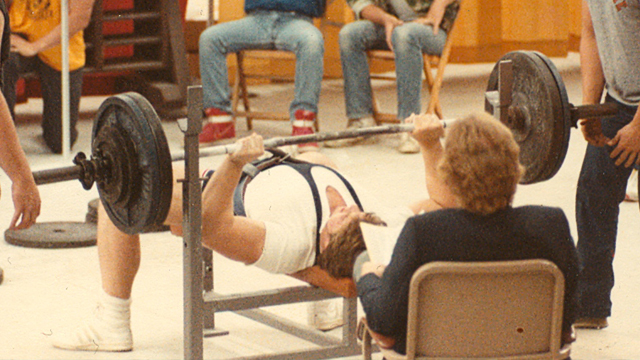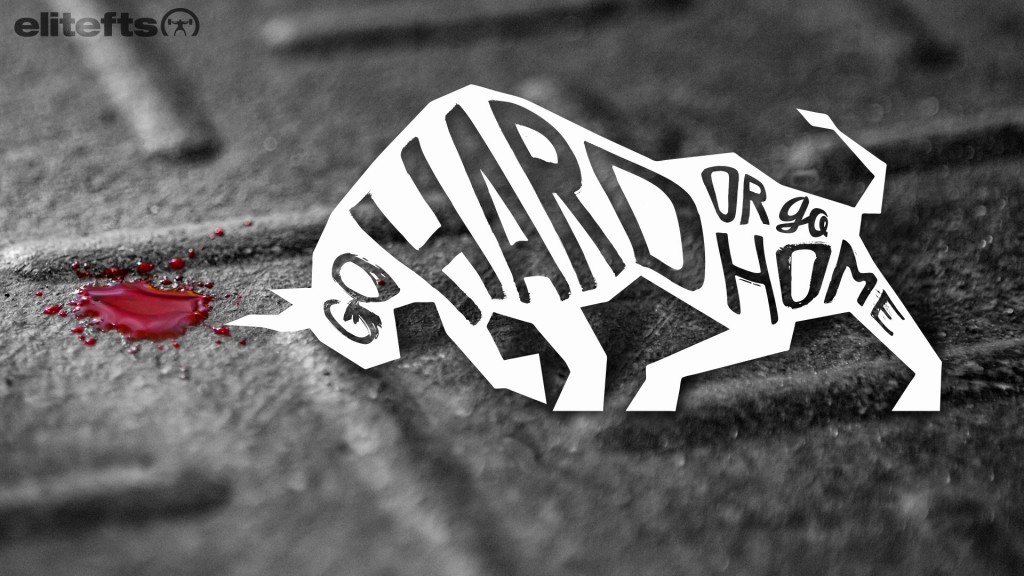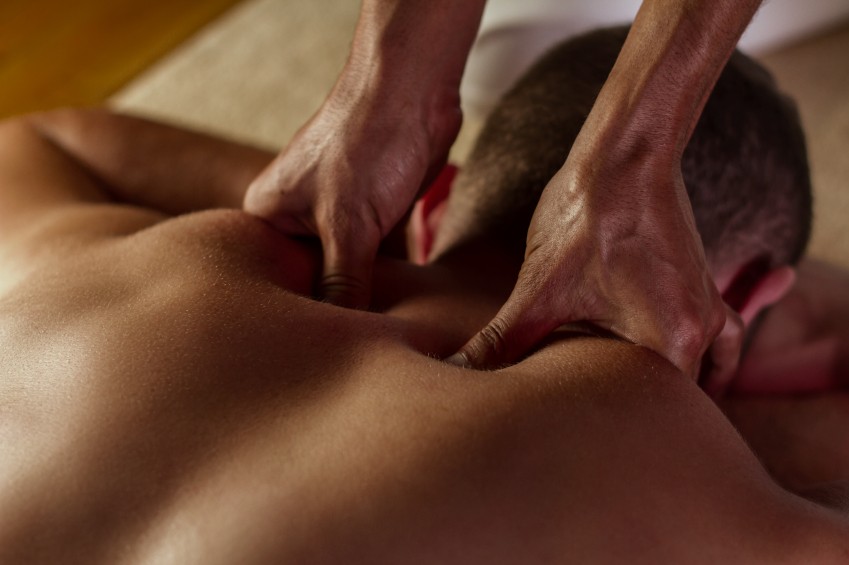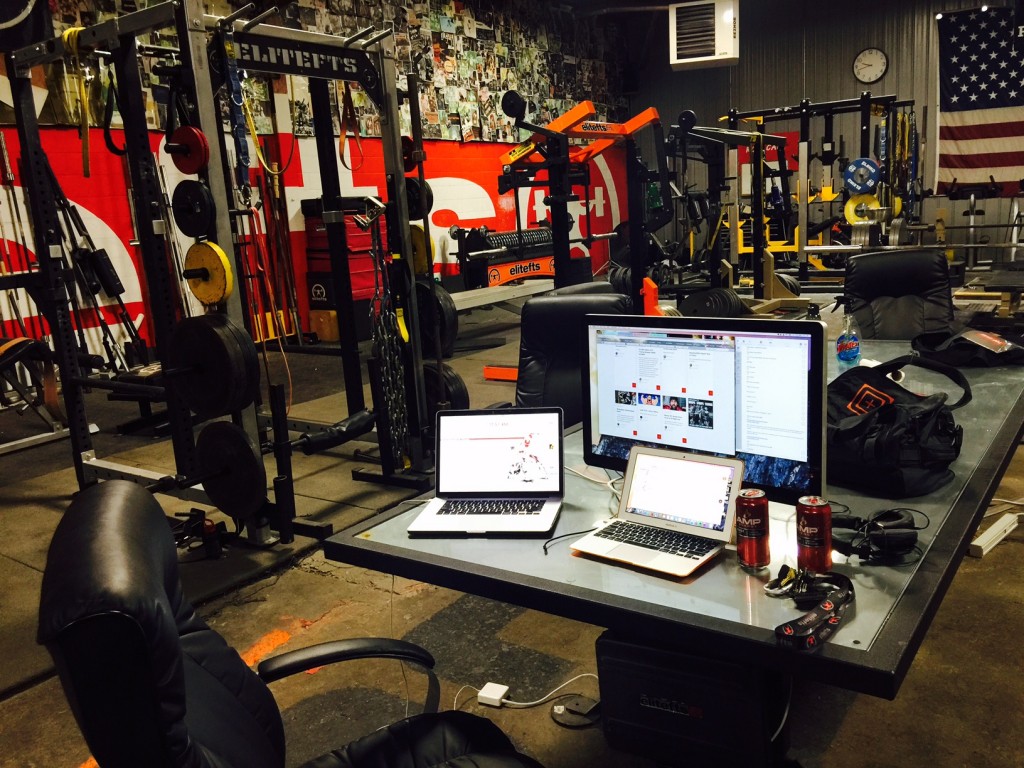
Five misconceptions Powerlifters will have when getting into the sport.
To better define power lifters, I’m writing about new lifters, so beginner power lifters getting into the sport. The five misconceptions that I see as being the most popular are:
1. Not as easy is what they make them out to be.
2. They will get beat up.
3. Your daily life and week schedule will change.
4. Most people don’t care.
5. Not all the answers you seek can be found online or from other people.
It's Not Easy.
At first, it will seem like your progress is coming at a rapid rate and it will. You will progress very fast. Much of that progression is going to be from neuromuscular coordination, muscular coordination and basically just technical skill set. You’re going to be learning how to do the lifts and your body is going to be becoming more efficient at doing the lifts. That alone is responsible for great increases in strength. When you couple that with the actual stimulus of the weight training to get stronger, the gains are going to obviously be rapid and fast. They don’t always come that way. They don’t always stay that way. It will come to a halt.
When it comes to a halt, you have to find your way around that. I’ve written many articles before in the past on how to overcome sticking points and that most sticking points or all sticking points are either technical, mental or physical. Most people look at the physical first when in all actuality it’s usually a technical sticking point.
Over a period of time, the lifts that you are actually doing in the competitive lifts are going to become your best feedback. They're going to be your best assessment tool because they’re going to help determine if it’s a technical weakness, if it’s a physical weakness and many times if it’s a mental weakness, but that goes beyond the extent of this blog post.
The important thing to realize is it’s not as easy is what beginners think when they come into it. They’re not going to get into the sport and progress right to the top of the game within a year or two. Does it happen? Yes, it does happen to a very special few.
To the majority, no, it does not happen and that’s regardless of performance enhancing drugs are not. That’s a whole other misconception, which I’m going to tie into this one and that is there is a misconception that everybody in the sport is using performance enhancing drugs and that’s just not the case.
If you look at the total number of power lifters compared to the total number of power lifters that are using, I am making a huge assumption here, but I’m going off my gut and I’m going off what I see and what I’ve seen through seminars and what I’ve seen through the years of customers and meeting people and competing, 80% of the sport is drug-free. There is a misconception out there that just getting involved in strengths sport means that you have to take drugs. That is not the case at all. Way too many people are assuming that’s the case without any facts to support that.
You Will Get Beat Up
Will get beat up, the longer you’re in the game, the more chance of injury you're going to have. When you are pushing close to the threshold and you're pushing close to maximum weight that you can lift, you're going to get hurt, you’re going to nicked up, you’re going to pull muscles, you’re going to get sore. I’m not saying that you’re going tear the muscles off your bones. All that it usually happens more with experience lifters, but it can happen with beginners. The point of the matter is the beginner is going to get sore and for a lot of beginners, you’re going to get sore in places you didn’t even know that you could get sore. That’s normal. That’s part of the sport, you will adapt to that. To think that you’re going to come in and not ever pull a muscle or not ever get sore or never have a sore back or sore elbow or sore shoulder or whatever, it’s a huge misconception and it’s totally not true. Very few get through unscathed.
The trick is to find the balance between your training, over training, over reaching and basically just keeping things simple and understand that there is a term that’s thrown around "training hard" and you got to train harder. That’s all relative. Training hard is all relative to your own level of conditioning and what you are able to handle. Somebody who’s got a very poor and low level of conditioning is training hard, if they are training at their threshold level of conditioning. If they are training above and beyond their threshold of conditioning, they're training stupid. Somebody who is better conditioned and more seasoned, who is training well under their threshold of training is probably not training hard enough. There is a balance and it’s just not the matter of straining, grunting, and turning blue in the face or having a bloody nose with snot all over your face.
Training hard is a relative term based upon what your level of conditioning is.
Your Lifestyle Will Change
Some people will try to say that it’s not a sport and it’s argued back and forth, but the fact of the matter is it really doesn’t matter what anybody else says. It’s what you saying is what you believe, but at the end of the day, your lifestyle, it's going to change. You have to be consistent on your training. You can’t train for one week and then come back three weeks later and train again. It has to be mapped out consistent to get to the training. To only train when you want to train or when you feel like training isn’t going to get the job done. It’s not always fun. The misconception is that it’s not always fun. It is work, it is training that’s no different than any other sport.
If you participated and played soccer, you played football or you wrestled or tennis or hell any other sport, while you love the sport, you love the aspects about the sport, there are still things about the sport that you hate it, but the key thing to keep in mind is you still had to practice, you still had to go to practice, you still had to go to work in to get the job done. Powerlifting is the same way. You can’t just put the work in when you feel like putting the work in. It has to be there on a consistent and regular basis for you to be able to have any degree of success. Now, if you want to just train whenever you want, and get whatever numbers come your way. That’s fine. You have the ability to do that as well, but most people that I know and most people that I talk to wouldn’t want to do that because they don’t want to look back and think, “What would I have been able to do if I would have been a little bit more consistent or if I would have taken it little bit more seriously?”
You also need to keep in the consideration that you have to recover. Recovery is an essential part of the training process. It can be argued it's actually the most essential part of the training process because you can train 12 hours a day and stay up all night and never sleep. You’re not going to make any progress at all. You have to be able to recover. That’s half of the equation, if not more than half of the equation. Going out, drinking every night is not going to help your body recover because you're not going to get the same quality of sleep that you’re going to need. You recover when you sleep. Most people take sleeping for granted. You know how many meme's we see that say - fuck sleep, it's stupid! We are human beings that require water,food, SLEEP and shelter.
These are basic needs and to think that you don’t need basic needs to advance in sport or business is fucking stupid. You need to be able to get the highest quality of sleep that you possibly can. The whole sleep thing (just recently) starting to come back in vogue again. It comes in vogues about every five years. Somebody always sprinkles some new supplement or some other new bullshit with. This is it's not some new concept... that the human body needs sleep to recover. I think we’ve pretty much known this since the age of time. It does get taken for granted by most.
\
F*&K SLEEP = Idiot
For you to perform at optimum levels, you’re going to have to get quality sleep. I can give you a list of things to be able to do to help enhance and to get better quality sleep. It’s really kind of a simple, just Google and you will find all the evidence, articles and support you need. I will say just keep to the basics. Some people will get super complicated and try to put their own twist on it to make it to look like they are experts at what they’re doing. It’s not that complicated. Keep it simple, make sure you’re getting the sleep cycles that you need to be able to recover and go from there. If it becomes too complicated, then you are making it too complicated. Find a more simple resource.
I will however say with the sleep that we all do fall into bad patterns and bad habits that need to be rechecked every now and again. Keep that in mind as well. I think that’s why a lot of people just kind of go over the topic without a whole lot of thought and especially when they start getting injured and not making progress, it's usually the very very last thing that they look at, where it should be one of the first things that they look at. When they do they usually find out that maybe they're on their computer way too late and they're trying to go to bed right after being on the computer or their brain is too active. They're nothing giving themselves time to get ready for bed or if the room is not dark enough, to hot, and so forth.
Nobody Cares
When it comes to your strength training and your progress, the people who matter in your life the most, your friends and your family, they don’t care how strong you are. It doesn’t matter to them. What matters to them is that you’re happy and if you are having fun and that you are what you are doing. Outside of that all the other critics and all the other people are going to comment and give you suggestions and help along the way, for the most part, they just don’t care. They want to impose their style or their way of training on you to be able to say that they helped you. On the other end of the site, you’re going to have people who’re going to criticize just because they're dicks. That’s just how it is. There are people out there who generally do care and want to bring people into the sport want to see others become better - but that is not as many as you may think.
If you are working with a coach or trainer remember - If the mistakes are all being made by somebody who is coaching you or somebody that is helping you along and you don’t know what they are, then you're not learning shit. It’s taking your ability to perform at your greatest potential away. You want to be a part of the process. You may not have the training intelligence or the experience to be able to be a part of that decision-making process at the very beginning, but if you are paying attention and you're constantly learning and you’re asking questions, then you are going to put yourself in position, be a part of that process and to be able to be in a position to where you can help to make those decisions down the line. This is what's going to make a tremendous difference and what will allow you to become is a top level lifter in any of the strength sports that are out there (if this is the path you select).
Not All Answers Will Be Found Online
Not all answers are going to be found through asking other people or searching the internet. There’ is just some shit you need to learn for yourself.
That’s life.
That’s anything in life.
You don’t know how bad it hurts to have a branch fall on your head until a branch falls on your fucking head. People can tell you, “Oh, it hurts like a motherfucker to get hit in the face with a baseball bat,” but you don’t know how it actually feels to get hit in the face with a baseball bat, until you get hit in the face with a baseball bat. Some things you just have to learn by doing. That’s true with training. There’s something that you cannot learn cognitively, you cannot learn through words and you can’t learn through text. You have to learn by feel.
You have to learn what it feels like to have the weight on your back, the weight in your hands. You have to learn that it may feel heavy when you take it out of the racks, but that doesn’t mean you can’t do it. You have to learn, it’s supposed to feel heavy because it is heavy, but that doesn’t mean you can’t do it, which is kind of a metaphor for life if you really think about it.
Anytime you get out of your comfort zone, you’re going to feel uncomfortable. If you take a weight out of rack that feels heavy that’s uncomfortable, just because you are out of your comfort zone, doesn’t mean you can’t do it. The only way you know if you can do it or you can’t do it is to actually fucking try. These are things that people can’t do or you. You have to take the initiative to do it on your own.
I’m not telling you to go max out every single day. The main thing that I’m telling you is to be aware, to be observant, to have self-awareness to know how things feel, to pay more attention on what that bar feels like on your body when you squat and you do well. How does that feel?
Not what did it look like on your fucking phone camera.
What did it feel like?
I'm all for video analysis. I love that. You can film your lift, then you can watch it. Problem is if you did a set of five, you have to do five reps before you can even fucking see if anything was good or bad.
If you learn how to feel what is good and what’s bad, after the first repetition, if the correction is needed, you can make the correction because it didn’t feel right. I mean you know how it’s supposed to feel, which gives you four good reps out of that set of five. Instead of having to film all five and then go, look at it and say, “Oh, the first one looks bad,” or “The first one looked good and the other four look like shit,” then you do another set and you're right back into the same thing again.
Sometimes, the best video analysis is going to come from people that are filming a lift that you don’t even know it’s being filmed because when you know something is being filmed, you’re going to perform the lift differently than when you know it’s not being filmed. I’m not saying that filming is a bad thing. I think it’s a good thing, but I also think it can become a very dependent thing. I think that it has the potential to take away one of the most critical skills a lifter needs to learn and that’s the skill of self-awareness and how that bar and how that lift is supposed to feel and how to make the corrections based upon what they‘re actually feeling, not what they are seeing and not what they are being told.
Take Away
With this all said, how is it different than anything else worth having? Nothing worth having is ever easy, it always requires sacrifice, work, time, consistency, belief, education and real word experience. Still nobody will really care but they might act like they do but it will still circle back to those who matter the most.
There really are not any misconceptions because in many ways sport is a microcosm of life.













